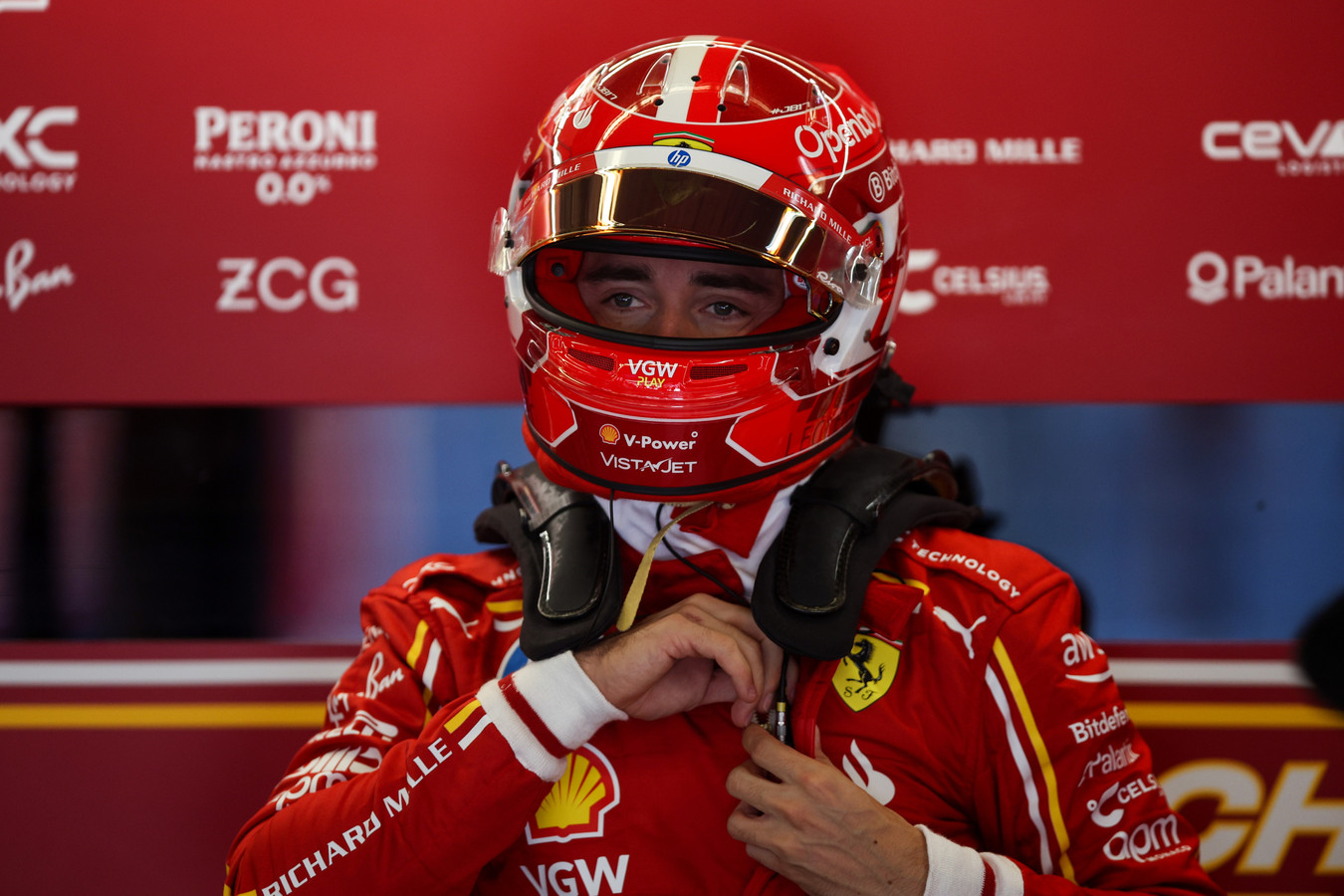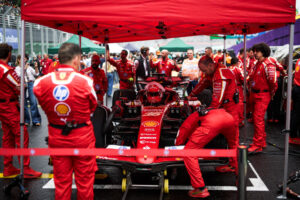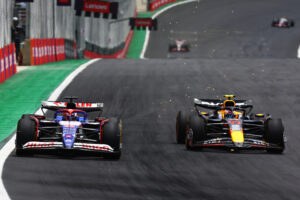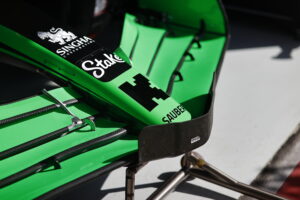Leclerc was fined for swearing during the press conference after the Mexico City Grand Prix, however, the story doesn’t end there
Charles Leclerc received an eye-popping €10,000 fine for swearing in a press conference post the Mexico City Grand Prix.
F1’s swearing ban has proven controversial since it was implemented at the Singapore Grand Prix this year. Drivers and fans have resented the governing body’s decision to ban swearing at live broadcasts. The ban came into effect at press conferences and various sessions of on-track action beamed live worldwide.
While Max Verstappen was the first driver to fall foul of this new rule, the rule has now captured its second victim. Charles Leclerc became the second driver to fall foul of the swearing ban. The Monagasque has paid a hefty fine for his actions.
Charles Leclerc received an eye-popping €10,000 fine for the same infraction. The Monegasque mistakenly uttered the f-word during the post-race press conference in Mexico City. Leclerc was answering a question reacting to his moment at the final corner that cost him second to Lando Norris late in the race.
He then went on to apologise instantly, quoted saying, ” Oh, sorry! Oh, no, oh no! I don’t want to join Max!” in reference to the Dutchman receiving community service as punishment for his actions in Singapore.
Leclerc’s actions during the post-race press conference meant a trip to meet the stewards. The Stewards arrived at a decision ahead of the following Brazilian Grand Prix. The decision saw Leclerc fined the aforementioned €10,000. Half of this remains suspended for a year, provided he doesn’t repeat the infraction once again.
This incident only highlights the complexities the FIA faces when implementing the controversial swearing ban.
Mitigating factors aided Leclerc’s severity of his swearing fine
According to the stewards, the difference between Leclerc’s and Verstappen’s actions decided the severity of the punishment. While Leclerc apologised immediately for his actions, Verstappen did not do the same. The Red Bull driver instead refused to open up during the press conferences, delivering one-word answers, before holding his own impromptu mini-interactive session with journalists beyond the bounds of the regular press conferences by teams.
The stewards promptly served him with a community service ban. Former F1 racer Johnny Herbert expressed the stewards’ decision to penalise Verstappen’s swearing and subsequent actions. He stated the myriad instances of swearing by F1 drivers, and that he wouldn’t want his five-year-old exposed to such language on television.
In the case of Leclerc, the stewards deemed the mitigating factors in Leclerc’s case to be his immediate apology.
“The stewards considered the mitigation factor that Leclerc was immediately apologetic, while noting that the driver’s contrite behaviour conclude that a breach has occurred and a penalty is warranted.” a statement read.
“The stewards do not consider that this breach reached the same level as the most recent case, and as such chose to levy a fine of €10,000 with €5,000 suspended pending no repeat within 12 months.” it continued.
One could certainly argue Leclerc did not swear intentionally or have any ulterior motives to put his point forward. However, fans and pundits have argued if such a hefty fine was even necessary in the first place. F1’s swearing ban will raise further questions if drivers are fined more for breaches off-track than on-track.
Is such a hefty fine even fair for Leclerc’s minor swearing infraction?
Mercedes received a €5000 fine for tyre pressure infractions on their cars. George Russell and Lando Norris too received a €5000 hit on their wallets for their aborted start infringements during the weekend.
While it is not feasible to compare monetary fines for separate incidents, there is no doubt that on-track incidents carry further dangers. In Russell and Norris’s case, the drivers violating the false start guidelines could have had greater consequences. Marshalls were working on the stranded Aston Martin of Lance Stroll at turn 4 close to the boundaries of the track.
A €10,000 fine for swearing could help set a strong precedent going forward. Drivers would then avoid swearing at all, even by force of habit. They would certainly exercise greater caution at press conferences and when speaking over the radio to the pit wall. Furthermore, the FIA would be able to ensure uniformity in punishments by fining even a minor offence of this order.
However, you wonder if the negatives outweigh the positives. Such a hefty fine, even if half of it remains suspended temporarily, appears harsh. Even more harsh when you consider Leclerc’s spontaneous apology, and his intention not to use a swear word.
There also emerges the problem of drivers being high on adrenaline after a race. In this case, uttering a swear word is an involuntary action, and uttered in the heat of the moment. It is something drivers cannot control at that point.
The drivers themselves pointed to the same in a press release by the Grand Prix Drivers Association (GPDA). It stated, “There is a difference between swearing intended to insult others and more casual swearing, such as you might use to describe bad weather, or indeed an inanimate object such as an F1 car, or a driving situation.”
The accountability picture: Where does the money go?
The FIA’s fines also speak of their irregularities in dishing out punishments across the board. If infringements off-track receive harsher fines than those on the track, it doesn’t set a good precedent.
Furthermore, the collective GPDA raised an important question about the monetary fines. They demanded accountability regarding the fines, and how the FIA would use this money.
“The GPDA has, on countless occasions, expressed its view that driver monetary fines are not appropriate for our sport.
“For the past three years, we have called upon the FIA president to share the details and strategy regarding how the FIA’s financial fines are allocated and where the funds are spent.
“We have also relayed our concerns about the negative image financial fines bring to the sport.
“We once again request the FIA president provides financial transparency and direct, open dialogue with us. All stakeholders (FIA, F1, the teams and the GPDA) should jointly determine how and whether the money is spent for the benefit of the sport,” the release stated.
All in all, this incident only highlights the complexities the FIA would face when implementing the swearing ban. The drivers’ collective reaction would certainly be interesting. Another development to follow would be the drivers rallying in unison to do away with the swearing ban.






